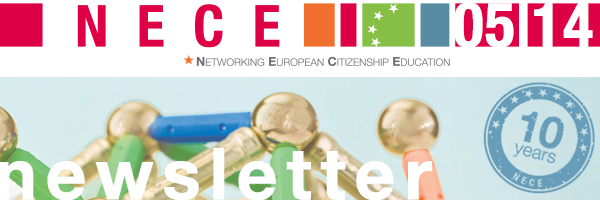| |
NECE Conference "1914-2014: Lessons from History? Citizenship Education and Conflict Management"
16-18 October 2014, Vienna (Austria)
The conference is fully booked.
2014 is marked by the centenary of the outbreak of the First World War, which is why this year’s NECE Conference in Vienna (Austria) is focussing on current crises and conflicts both inside and outside Europe.
The event will seek to address the challenges Europe is facing against the backdrop of its history of war and conflict in the 20th century.
One of the central questions will be how citizenship education can best contribute to conflict prevention, conflict management and reconciliation processes.
Many internationally renowned experts have confirmed that they will be taking part, and that they will be on hand to enter into a dialogue with participants.
The President of the Republic of Austria Heinz Fischer will open the conference on 17 October 2014. Jan-Werner Müller, a Professor of Politics at Princeton University, will also be there to elaborate on Europe’s political crises.
A prestigious scholar known internationally for her work on memory studies, Aleida Assmann will reflect on the “Commemoration Year 1914/2014”.
Lynn Davies, an Emeritus Professor of International Education with central interests in the fields of education and conflict, education and extremism, and education in fragile states,
will address the role of citizenship education in conflicts taking place in and around Europe, while historian and author Philipp Blom will focus on European legacies in today’s conflicts.
He will also comment on current conflicts in Europe together with Ivan Krastev, the Chairman of the Centre for Liberal Strategies in Sofia and a permanent fellow at the IWM Institute of Human Sciences in Vienna.
Philosopher and political adviser Luuk van Middelaar, who is a cabinet member under the President of the European Council Herman Van Rompuy, will join them in the final discussion round on 18 October.
Throughout the course of the conference, the NECE Weblog will offer a wide range of updates, reports, interviews and other information.
|
|
|
| |
“Reconciliation – an educational mission, and a possible one”
Article by Corinna Noack-Aetopulos
On the occasion of the centenary anniversary of World War I, the question of how civil society and adult educators are working to solve the problems posed by today’s conflicts,
wars and civil wars – and understanding how they’ve approached them in the last few decades – is more pressing than ever.
To find out more, read the article “Reconciliation - an educational mission,
and a possible one” by Corinna Noack-Aetopulos who is the Director of Programmes at the Center for Democracy and Reconciliation in Southeast Europe (CDRSEE) in Thessaloniki.
|
|
 |
| |
“Remembrance and Solidarity Studies” on the First World War Centenary
The second issue of the academic periodical from the European Network Remembrance and Solidarity is now available online.
This “Remembrance and Solidarity Studies” is entirely dedicated to European memories of the First World War. In this issue, authors like Andrzej Chwalba, Christian Wevelsiep, Jenny Wustenberg,
and Mark W. Clark pose new questions about the Great War’s significance and long-term impact. “Remembrance and Solidarity.
Studies in 20th Century European History” is a platform that allows researchers who focus on the history of Central Europe to exchange views, while texts published on the website will form the basis of future scientific studies.
The bulletin is addressed to the scientific community (academic staff, undergraduates, graduate students, etc.) as well as a broad group of history enthusiasts (teachers and others interested in its topics).
For more information, head for Remembrance and Solidarity. Studies in 20th Century European History.
|
|
 |
 |
| |
NECE ACTIVITIES – Focus Frameworks at the NECE Conference |
|
 |
| |
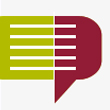 |
The “CLEAR” Focus Group
At its annual workshop in Berlin held on 13-14 June 2014, the “Concept Learning for Empowerment through Reflection and Analysis” (CLEAR) project decided that making the group’s website more informative and user-friendly should be a priority. To accomplish that goal, the site will in future be split into two different areas, targeting newcomers and advanced users respectively. The new website is slated to be launched in autumn. The project group is also working on a brochure describing the CLEAR project and its methodology for publication on the project website this autumn. A report of the June meeting in Berlin is available here. The group’s next meeting will take place at the NECE Conference in Vienna from 16 to 18 October 2014. The CLEAR methodology will be introduced in a workshop that is open to all interested conference participants. The group will also be presented at the event’s project market.
For more information on the work of the “Concept Learning for Empowerment through Analysis and Reflection” Focus Group, click here.
|
|
 |
| |
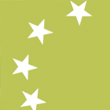 |
The “Exchange between Europe and North Africa” Focus Group
Following the annual NECE Conference, the next meeting of the focus group “Exchange between Europe and North Africa” is due to take place on 18-19 October. The meeting offers a great opportunity for experts and practitioners from North African and European countries to get together and exchange thoughts and ideas, draw inspiration for future cooperation projects, discuss recent developments and make new plans. This focus group meeting will additionally concentrate on citizenship education in Web 2.0, a topic that (among others) will be at the heart of a forthcoming bilingual publication on the field in North Africa and Europe. The focus group will also be presented at the project market of the NECE Conference.
For more information on the work of the Focus Group “Exchange between Europe and North Africa”, click here.
| |
 |
| |
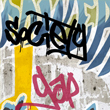 |
The “Hard-to-reach learners and youth” Focus Group
The second workshop of the focus group was hosted by the School Development Support Agency in Leicester (UK) on 10-12 July 2014. The workshop offered a platform to review the group’s progress, plan ahead to discuss conceptual issues, and refine its framework and goals. In order to create synergies between the project teams, the workshop offered a space for exchange and for participants to present their projects and research. The working groups will present their work in a poster session at the project market of this year´s NECE Conference in Vienna.
You can find more information on the work of the “Hard-to-reach learners and youth” focus group here.
|
|
 |
| |
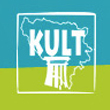 |
The “Vote Match Europe” Focus Group
Parliamentary elections will be taking place in the Federation of Bosnia and Herzegovina and the Republika Srpska on 12 October 2014. To help counteract a lack of political information in the general population, the Institute for Youth Development KULT recently decided to introduce an online tool for gauging voter preferences in the elections. In cooperation with the developers of the VoteMatch tool, which has a long history in Europe, the institute has begun development on an election quiz for Bosnia and Herzegovina dubbed “Izboromat”. The stated objectives are to inform users more comprehensively about key political issues and the differences between political groupings in BIH, to encourage eligible voters to cast their vote in the elections, to promote debate and to make the elections more interesting for voters.
You can find more information on the work of the Focus Group “Vote Match Europe” here.
|
|
 |
| |
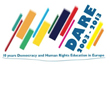 |
DARE: The European Civil Society Platform on Lifelong Learning: Lessons EU Parliamentary Elections have to teach us about the Future of Europe
In the aftermath of EU parliamentary elections, Europe is waking up to the unpleasant realisation that many of its citizens appear to have turned their backs on the union. The very high levels of abstention (up to 87% in some member states) and the rise of right-wing parties are two eye-opening observations. The European Civil Society Platform on Lifelong Learning (EUCIS-LLL) believes Europe should make a sustainable investment in public goods and services like education, training and research for economic development, social and civic participation, and well-being. Europe will only be able to prevent more of its citizens from turning their backs on our ideal of integration and solidarity if it grows better at delivering on all these aspects.
DARE stands for Democracy and Human Rights Education in Europe. It is a Europe-wide network focusing on the twin fields of Education for Democratic Citizenship (EDC) and Human Rights Education (HRE). DARE will also be represented at the NECE Conference in Vienna.
Read more at the DARE Network Blogspot.
|
|
 |
 |
| |
EURO-MED COOPERATIONS |
|
 |
| |
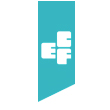 |
Exhibition Report: Reframe – Perspectives on Europe through Comics from Algeria, Turkey and the UK
The report accompanying the exhibition “Reframe”, which covered the work of nine artists from Algeria, Turkey and the UK who use distinctive styles and viewpoints to ‘reframe’ perspectives on Europe, details its specifics and those of the surrounding events that took place at the Philanthropy House in Brussels from 19 March - 12 May 2014. It also showcases feedback in the form of collected evaluation forms and excerpts from entries in the exhibition’s Visitor's Book, provides collations and summaries of publicity and advertising material, and highlights some concluding remarks.
You can find the report and more information here.
|
|
 |
| |
GOOD PRACTICE: IDEAS & EXAMPLES |
|
 |
| |
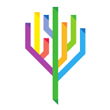 |
Genealogies of Memory
The “Genealogies of Memory” project facilitates academic exchange between Central and Eastern European scholars of individual and collective memory, and is aimed at promoting that region’s study of memory in the broader international academic community. What’s unique about the conference and seminar programme is its attempt to define the specificity of Central and Eastern Europe in terms of history and memory by looking at the changing practices of remembrance in the region during the 20th and 21st centuries. At the same time, the project can be seen as a proposal to view history and memory in a broader European and global context, and as encouragement to search for the region’s possible application of memory research within the broader international study of social and cultural memory. The “Genealogies of Memory” team is particularly interested in theoretical and methodological questions, as well as in how they pertain to specific historical and geographical contexts.
To find out more, visit Genealogies of Memory.
|
|
 |
| |
POLITICS & POLICIES & CITIZENSHIP EDUCATION |
|
 |
| |
Europe+ – Civil Society for the Renewal of European Democracy
Early July saw the official launch of Europe+, a broad grassroots alliance that brings together over 40 organisations from civil society that are calling for democracy in the EU to be renewed and streamlined. Founded over the past year of demanding political and economic challenges, Europe+ is a transparent and inclusive space for debate that has been created by and for civil society. Its goal is to play a role in the constructive regeneration of the European project.
For more information, please visit Europe+.
|
|
| |
Now Live: New European Adult Learning Platform
A new initiative funded by the European Commission called the Electronic Platform for Adult Learning in Europe (EPALE) is the latest development in the EU’s long-term commitment to promoting high-quality adult learning in Europe. The platform is open to teachers, trainers and volunteers, as well as to policymakers, researchers and academics involved in adult learning and education.
To find out more, click here.
|
|
| |
The European Wergeland Centre Action Plan against Radicalisation and Violent Extremism
The European Wergeland Centre (EWC) is currently implementing one of 30 measures in the Norwegian government’s action plan against radicalisation and violent extremism. The centre’s Executive Director Ana Perona was part of a group specifically invited by Norwegian Prime Minister Erna Solberg to take part in an online meeting focussed on the topic of hate speech directed against women. During the meeting, the EWC underlined the importance of long-term efforts in strengthening the role that schools play in the prevention of hate speech.
For more information, please visit the European Wergeland Centre.
|
|
| |
Europe’s "Remembering for the Future" Initiative
In conjunction with DVV International (Institute for International Cooperation of the German Adult Education Association), the European Association for the Education of Adults has now launched an initiative focussing on projects related to World War I. Organised by adult education providers all over the continent, the initiative seeks to help create dialogue, and encourage research and discussion in this key area. “Remembering for the Future” looks at local history during WWI, and also reflects on the current and future situation in Europe. Its activities may include local study groups, workshops, lectures, conferences, online resources, movies, podcasts and other media projects. In addition to these activities, participating organisations are invited to create their own unique activities.
Find out more at the European Association for the Education of Adults.
|
|
 |
| |
CALLS |
|
 |
| |
Call for Entries: 2015 EU Prize for Cultural Heritage / Europa Nostra
The European Union Prize for Cultural Heritage / Europa Nostra Award is Europe’s most prestigious annual prize for honouring outstanding heritage achievement in the EU. By recognising excellence and dedication among architects, craftspeople, cultural heritage experts, volunteers, schools, local communities, heritage owners and the media, it seeks to stimulate creativity and innovation through the power of example. The closing date for the submission of applications is 15 October 2014.
If you’re interested in nominating yourself or someone else for the award, please visit the Europa Nostra website and complete the entry forms.
|
|
 |
| |
EU Young Translator Contest 2014 – Open for registration until 20 October 2014
The EU Young Translator contest is an annual competition for 17-year-old students from all over Europe that offers the opportunity to experience the challenges and joys of transforming one language into another. The European Commission’s translators have been running the contest since 2007. On 27 November, young adults born in 1997 are invited to try their hand at translating a one-page text on European identity into any of the 552 language combinations possible from among the EU’s 24 official languages. In April, the winners – one contestant per member state – will be invited to an awards ceremony in Brussels, where each will receive a trophy from the European Commissioner for Education, Culture, Multilingualism and Youth.
For more information, please visit the European Commission website.
|
|
 |
| |
EVENTS |
|
 |
| |
European Local Democracy Week
13-19 October 2014
The European Local Democracy Week is an annual happening with national and local events organised by participating local authorities in all of the Council of Europe’s Member States. Its purpose is to foster knowledge of local democracy and promote the idea of democratic participation at the local level.
For more information, please visit the European Local Democracy Week website..
|
|
 |
| |
Think Global – Act Local: Education for Democracy
21-22 October 2014, Strasbourg (France)
This meeting between the Council of Europe Network of Coordinators for Education for Democratic Citizenship and Human Rights Education and the Pedagogical Club of European Capitals is being held within the framework of the European Local Democracy Week. The goal of the meeting is to explore current challenges in the areas of citizenship and human rights education – in particular the role and contribution of local authorities in this area. Participants will also discuss possible avenues for future action, as well as approaches aimed at strengthening cooperation and networking at different levels.
For more information, please visit the Council of Europe website or the Network of coordinators for citizenship and human rights education.
|
|
 |
| |
Public Conference #FixEurope
25 October 2014, Berlin (Germany)
In partnership with the German Heinrich-Böll Foundation, the three-day #FixEurope Autumn Campus taking place from 21-24 October in Wartin will end with a public conference in Berlin. The event is to celebrate the closing of the Campus, and also to give the wider public the opportunity to engage in strategic outlooks for civil society engagement in Europe. European Alternatives invites anyone interested in the future of the EU to attend the conference in Berlin. Early registration is advised, but not compulsory. The keynote address at the conference will be held by Saskia Sassen.
For more information, please visit European Alternatives.
|
|
| |
International Metropolis Conference “Migration - Feeding the planet, energy for life”
3-7 November 2014, Milan (Italy)
Milan is gearing up to host the Expo 2015 Universal Exposition, which is titled “Feeding the planet, energy for life”. Taking place a year in advance, the 2014 International Metropolis conference – which is planned as an introduction to the main Expo 2015 event – will emphasise the significance of how individuals are moving in the early years of this new millennium. Pathways people take as they migrate and emigrate have now become a distinctive element of any international society. By acknowledging the centrality and plurality of cultures, this conference aims to highlight the contributions of energy and wealth brought about by migration.
For more information on the programme, venue and registration, please visit the International Metropolis Conference 2014 Website.
|
|
| |
Conference “Collective vs. Collected Memories. 1989-91 from an Oral History Perspective”
6-8 November 2014, Warsaw (Poland)
The 25th anniversary of the 1989 revolutions in Eastern Europe is an invitation to analyse the gradual transformation of memories involving the collapse of state socialism at both individual and collective levels. It also offers us the opportunity to historicise the ‘memory boom’ that began in 1989/1991, which continues to define the cultures of the region. The “Genealogies of Memory” programme invites scholars engaged in memory studies, oral history, or biographical research to discuss their conceptual agendas, and focuses on how change has been commemorated, remembered, or forgotten in Eastern Europe and beyond.
For more information, visit Genealogies of Memory.
|
|
| |
Conference of the European Association for Practitioner Research on Improving Learning
25-28 November 2014, Nicosia (Cyprus)
The European Association for Practitioner Research on Improving Learning (EAPRIL) is organising a parallel conference programme on Learning & Development alongside its established programme on Education & Learning. EAPRIL’s goal is to close the gap between researchers and practitioners in both fields, and this event differs from other conferences due to its highly interactive formats and crossover between research and practice. Developed by EAPRIL in cooperation with Maastricht University, the very first European Learning Compass will also be presented at the conference.
Find more information on the EAPRIL conference.
|
|
 |
 |
| |
|
|
 |
| |
You can find more current publications on citizenship education in Europe at the NECE website.
You receive the NECE Newsletter because you subscribed and have confirmed that you wish to receive information about the NECE-Networking European Citizenship Education initiative. If you would like to unsubscribe, please click here.
The NECE Newsletter is published regularly and distributed via e-mail. It is available to anyone on the www.nece.eu website. The newsletter is published by the German Federal Agency for Civic Education (bpb), which is responsible for its content according to definitions laid down by the German Telemedia Act.
Further contact information:
German Federal Agency for Civic Education
Adenauerallee 86
53113 Bonn (Germany
www.bpb.de / www.nece.eu
If you have any questions please e-mail to: nece@lab-concepts.de
The NECE newsletter contains information about current professional debates in the field of citizenship education in Europe. We hope it will serve as an important tool of communication and co-operation among stakeholders and institutions in Europe actively engaged in citizenship education. Our aim is to increase transparency for national actors in this field and for the growing NECE network.
|
|
 |
|
